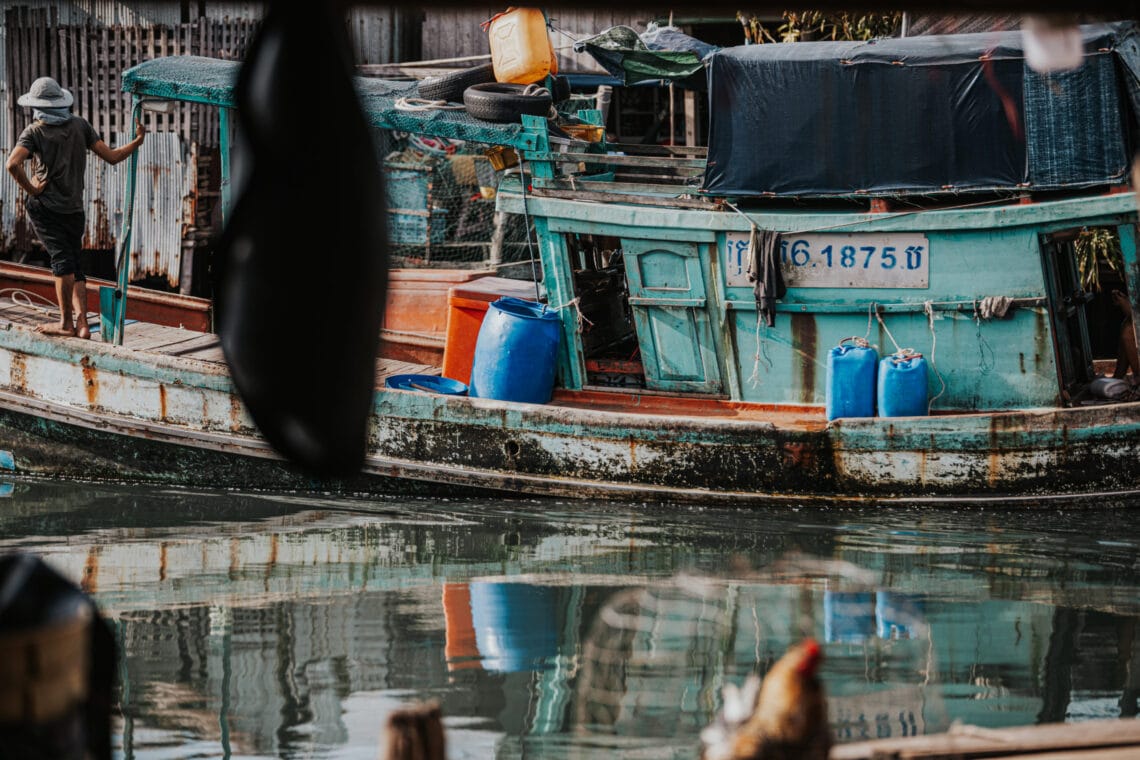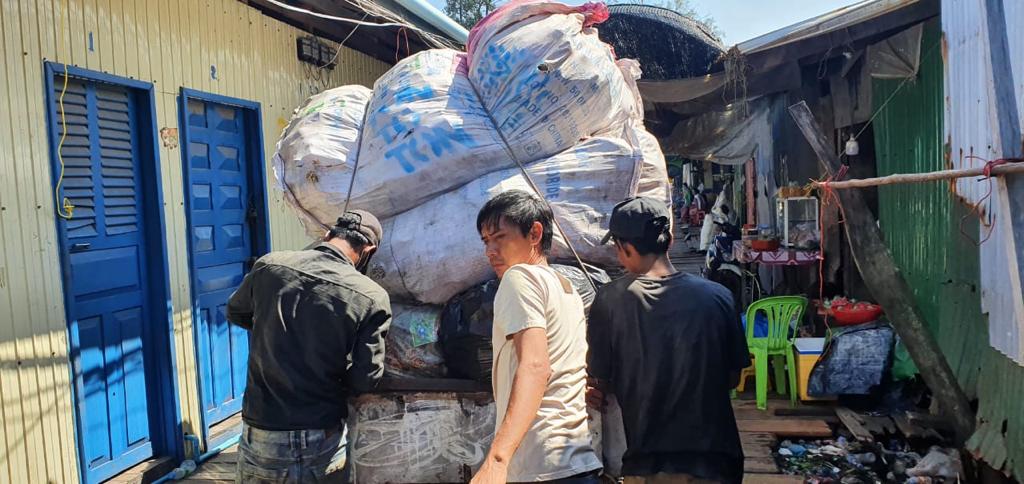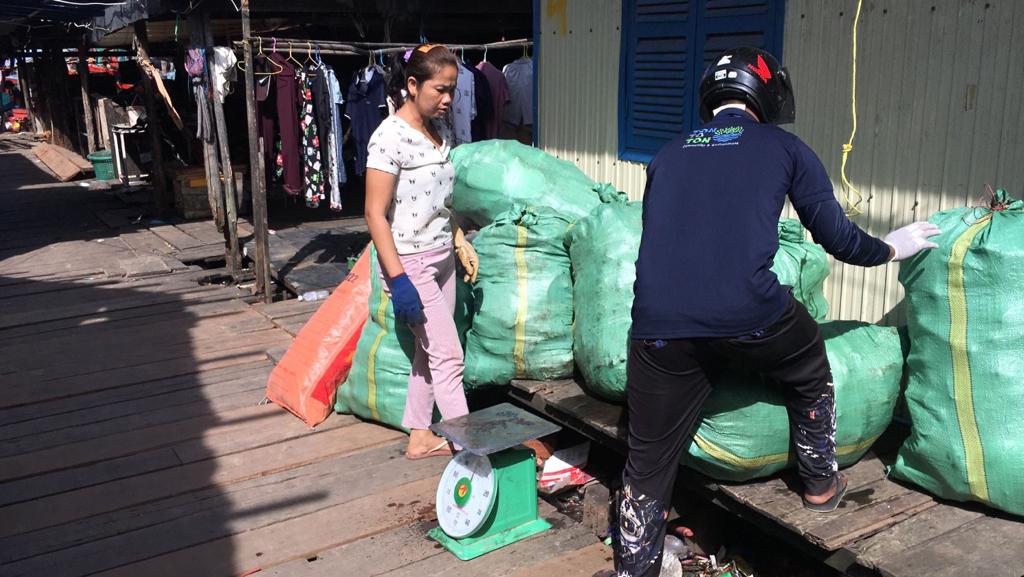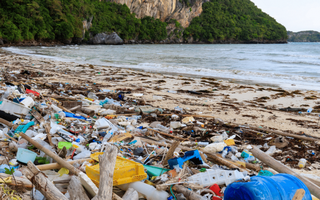- green-spots
- waste
- Cambodia
- Plastic collection, Cambodia

Problems
In many rural communities across Cambodia, mismanaged plastic waste has reached an emergency state. Refuse leaks into households, litter shorelines, and floats along waterways. A survey conducted by Fauna and Flora International (FFI) on Koh Rong and Koh Sdach islands revealed that plastics accounted for 80% of coastal pollution found on mainland beaches. Surveys on one island found an average of 12 single-use plastic bags are used per household per day. Plastic waste in this country is colonizing the villages of Tomnup Rolork and Oh Vietnam, leaving inhabitants with a living space that has become an open-air garbage dumpsite. In 20 years, these villages have suffered from thick layers of plastic waste and seen their waste increase with rivers flooded with Ocean Bound Plastic (OBP).
Solutions
Empowering waste pickers to protect the ocean with TonToTon
Author: Tontoton
In Cambodia, TONTOTON – specializing in plastic pollution clean-ups – remunerates plastic waste pickers for non-commercially recyclable plastic waste, recognizing their contribution to saving the planet and offering them a decent livelihood opportunity. As plastic pollution disproportionately affects marginalized communities, this initiative is a game changer in a region that desperately needs solutions for its waste pickers. Collecting all Ocean Bound Plastic (OBP) is a challenge that involves various actors and stakeholders, from waste pickers and recycling industries to waste treatment industries. If collecting commercially recyclable OBP is relatively simple, when it comes to low- or no-value plastic, it becomes mission impossible! TONTOTON is addressing this issue by paying waste pickers to collect non-commercially recyclable OBP and for plastic waste treatment. TONTOTON is then selling plastic credits (OBP Credits) as the funding source for its operation. Once collected and weighed, every piece of plastic waste is handled correctly and treated through Co-Processing in cement plants to serve as an alternative fuel to coal, thus ensuring the plastic is definitely out of the environment while reducing the CO2 footprint of the cement plant. TONTOTON works with relevant agencies, NGOs, and the government to mobilize more waste pickers, deploy awareness and education campaigns, and urge community members to take charge of their clean environment. For instance, UNDP, as a global imperative, is one strong partner to implement a holistic approach to plastic waste management in Cambodia. In addition to the environmental benefits, TONTOTON´s initiative generates positive impacts for local communities, giving them pride and self-confidence; one is recognized for his hard work and has higher aspirations for his family. Integrating waste pickers towards a more formal sector is crucial for better waste management in Cambodia, and allowing them to earn a dignified income is a way to act against their stigma and exclusion.
Source: https://www.obpcert.org/inspiring-stories/tontoton-empowering-waste-pickers-to-protect-the-ocean/
Gallery
4Timelines
2023
The MoE, the Embassy of Japan, GIZ, and UNDP organized the third National Forum on Combatting Plastic Pollution in Cambodia, featuring creative awareness-raising initiatives and innovative circular businesses for tackling plastic pollution. The forum also highlighted the progress and challenges of implementing the draft sub-decree on plastic management, which aimed to regulate the production, distribution, and use of plastic products.
2022
Tontoton, an innovative community-based solution, removed 180 tons of orphan plastic waste in Cambodia. The project, supported by the Plastic Bank, empowered local waste collectors to exchange plastic waste for cash, goods, or services and created a circular economy for plastic recycling.
2021
The World Bank approved a $60 million credit to support Cambodia’s improvement of solid waste and plastic management. The project, co-financed by a grant from the PROBLUE Trust Fund, aimed to strengthen institutional capacity, enhance private sector performance, and improve waste fee systems for sustainable waste operations
2020
The MoE, in collaboration with the Ministry of Education, Youth, and Sport, launched a pilot project to introduce waste segregation and recycling in 10 public schools in Phnom Penh. The project aimed to educate students and teachers on the benefits of reducing, reusing, and recycling waste and to provide them with waste bins and bags.
2019
The MoE, the Embassy of Japan, GIZ, and UNDP organized the first National Forum on Combatting Plastic Pollution in Cambodia, bringing together stakeholders from various sectors to share best practices and solutions for plastic management. The same year, the MoE also issued a sub-decree on solid waste management, which provided a legal framework and guidelines for waste collection, disposal, and recycling.
2018
The Ministry of Environment (MoE) launched a campaign to reduce single-use plastic bags in cooperation with supermarkets and convenience stores. The campaign aimed to raise awareness and encourage consumers to use reusable bags instead of plastic ones.
2015
According to a World Bank report, Cambodia generated about 1.5 million tons of waste, of which 11 percent was recycled and 41 percent was sent to dumpsites. The remaining 48 percent was illegally dumped or burned, causing environmental and health problems.


